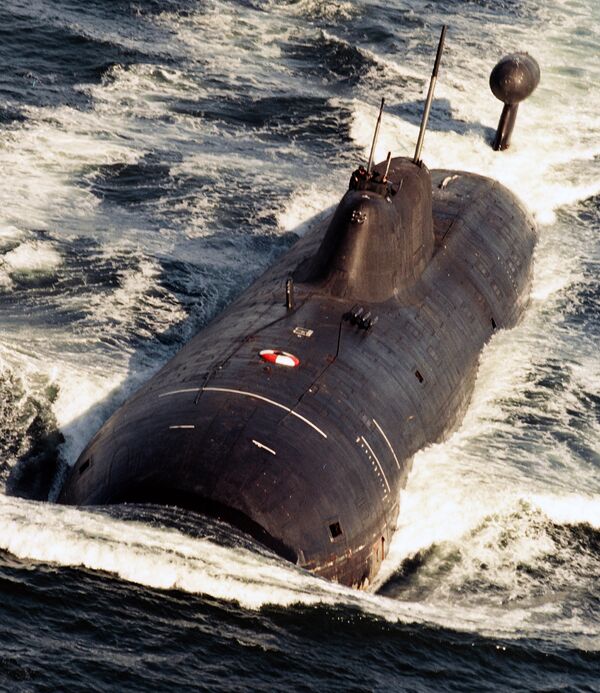MOSCOW, October 5 (RIA Novosti) - Russia's Sevmash shipyard will start the construction of the fourth Borey class (Project 955) strategic submarine on December 22, a Sevmash press secretary said Monday.
Anastasia Nikitinskaya said the keel-laying ceremony for an as-yet-unnamed sub was timed to coincide with the shipyard's 70th anniversary.
She said Russia's newest Borey class strategic nuclear submarine, the Yury Dolgoruky, had undergone three sea trials out of the required six.
The Yury Dolgoruky, which is expected to be armed with the new Bulava sea-launched ballistic missiles (SLBM), successfully completed its first round of sea trials in the White Sea on July 10.
The vessel is 170 meters (580 feet) long, has a hull diameter of 13 meters (42 feet), a crew of 107, including 55 officers, a maximum depth of 450 meters (about 1,500 feet) and a submerged speed of about 29 knots. It can carry up to 16 ballistic missiles and torpedoes.
The construction cost of the submarine totaled 23 billion rubles (about $713 mln), including 9 billion rubles ($280 mln) for research and development.
Two other Borey class nuclear submarines, the Alexander Nevsky and the Vladimir Monomakh, are in different stages of completion. Russia is planning to build eight of these subs by 2015.
According to Navy officials, fourth-generation Borey class nuclear-powered submarines will form the core of Russia's modern strategic submarine fleet, and will be deployed with Russia's Northern and Pacific fleets.
However, the submarine's commissioning into the Navy could be delayed by setbacks in the development of the troubled Bulava missile, which has officially suffered six failures in 12 tests.
However, some analysts suggest that in reality the number of failures was considerably larger. For example, according to Russian military expert Pavel Felgenhauer, of the Bulava's 12 test launches, only one was quite successful.
The future development of the Bulava has been questioned by some lawmakers and defense industry officials, who have suggested that all efforts should be focused on the existing Sineva SLBM.
But the Russian military has insisted that there is no alternative to the Bulava and pledged to continue testing the missile until it is ready to be put in service with the Navy.


